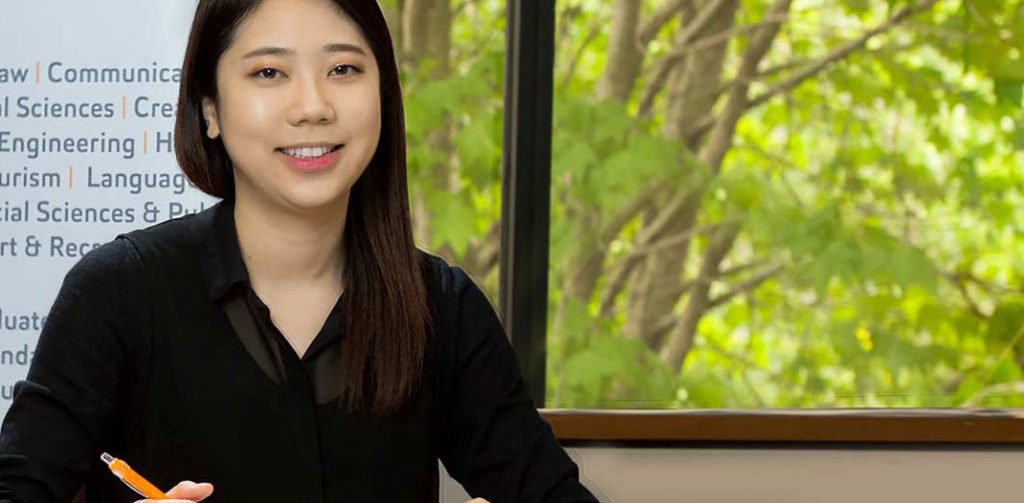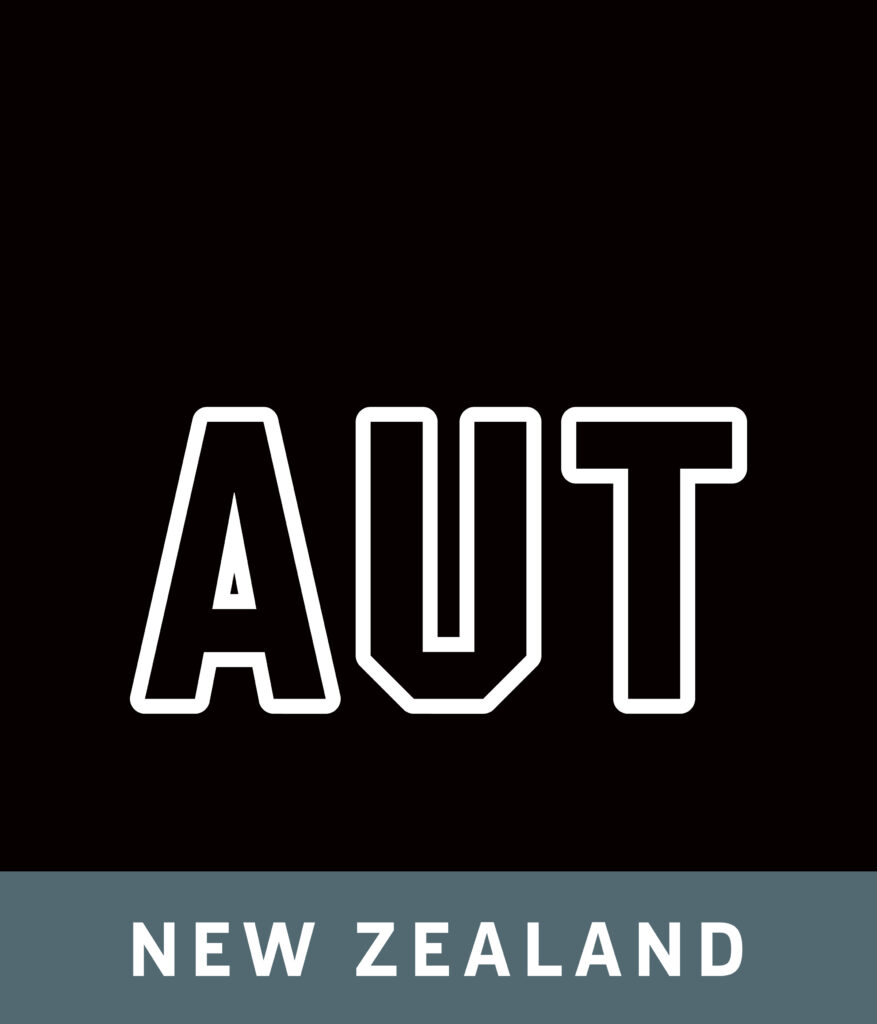AUT
Certificate in
Foundation Studies
The AUT Certificate in Foundation Studies prepares students for entry into AUT undergraduate degree programmes.


The AUT Certificate in Foundation Studies helps international students transition to an AUT undergraduate degree of choice. The certificate programme is taught by UP International College in the heart of Auckland’s CBD, close to public transport and a wide range of accommodation.
New Zealand’s fastest growing university, AUT is home to 30,000+ students, including 5,400+ international students from over 95 countries. AUT has a reputation for strong industry links and high graduate employment rate.
University Pathways
Students who achieve required grades in the AUT Certificate in Foundation Studies are guaranteed entry into an appropriate AUT undergraduate degree. The programme is also approved for entry into all other New Zealand universities and selected Australian universities.
Two offers of place from the start
Students who enrol in the AUT Certificate in Foundation Studies receive two offers of place: a letter of offer for the Foundation Studies course and a conditional letter of offer for an undergraduate degree at AUT. Once students successfully complete their certificate and meet other admission requirements, AUT sends a confirmed offer of place.
Academic excellence – the key to success
UP Education recruits top specialists in each field of study so you can achieve the best possible results. Teaching is a mix of lectures, tutorials and self-study periods, with laboratory and practical classes for some subjects. Expect 20–29 hours of contact teaching each week, with another 20 hours a week in self-study. Each student is assigned a tutor to be on hand to help with any issues. AUT staff also meet with students to discuss degree options and answer questions.
Facilities
Intakes and Fees
Applying for the AUT in Foundation Studies is simple. Applications can be made in person at our UP International College Auckland campus, online, or by filling out a hard copy application form and emailing or posting it to us.
Intakes
The AUT Certificate in Foundation Studies takes 6 to 18 months (two to six terms) to complete, depending on the student’s academic background and level of English. These start dates include Orientation, which students must attend.
| Course | Duration | English Level | Start Dates (2021) | Cost |
|---|---|---|---|---|
| Fast Track | 6 months (2 terms) | IELTS 6.0 (a minimum of 5.0 in all bands) | 25 January, 12 April, 12 July, 27 September | NZD18,000 |
| Standard | 8/9 months (3terms) | IELTS 5.5 (a minimum of 5.0 in all bands) | 25 January, 12 April, 12 July, 27 September | NZD21,000 |
| Standard Plus | 12 months (4 terms) | IELTS 5.0 (a minimum of 4.5 in all bands) | 25 January, 12 April, 12 July, 27 September | NZD28,000 |
| Extended | 18 months (6 terms) | IELTS 4.5 (a minimum of 4.0 in all bands) | 25 January, 12 April, 12 July, 27 September | NZD42,750 |
| Fast Track | |
| Duration | 6 months(2 terms) |
| English Level | IELTS 6.0 (a minimum of 5.0 in all bands) |
| Start Dates | 25 January, 12 April, 12 July, 27 September |
| Cost | NZD18,000 |
| Standard | |
| Duration | 8/9 months(3terms) |
| English Level | IELTS 5.5 (a minimum of 5.0 in all bands) |
| Start Dates | 25 January, 12 April, 12 July, 27 September |
| Cost | NZD21,000 |
| Standard Plus | |
| Duration | 12 months (4 terms) |
| English Level | IELTS 5.0 (a minimum of 4.5 in all bands) |
| Start Dates | 25 January, 12 April, 12 July, 27 September |
| Cost | NZD28,000 |
| Extended | |
| Duration | 18 months (6 terms) |
| English Level | IELTS 4.5 (a minimum of 4.0 in all bands) |
| Start Dates | 25 January, 12 April, 12 July, 27 September |
| Cost | NZD42,750 |
Entry requirements for the AUT Certificate in Foundation Studies:
Students must be able to show proof of successful academic experience and qualifications at:- New Zealand Year 12 level (NCEA Level 2); or
- Grade 12/11 (Asia); or
- Senior high school 3rd/2nd year, or
- agreed equivalent
- IELTS 6.0 (minimum of 5.0 in all bands); or
- UP English Studies Level 5; or
- equivalent in UP English Language Test; or
- agreed equivalent
- IELTS 5.5 (minimum of 5.0 in all bands); or
- UP English Studies Level 4; or
- equivalent in UP English Language Test; or
- agreed equivalent
- IELTS 5.0 (minimum of 4.5 in all bands); or
- UP English Studies Level 3; or
- equivalent in UP English Language Test; or
- agreed equivalent
- IELTS 4.5 (minimum of 4.0 in all bands); or
- UP English Studies Level 2; or
- equivalent in UP English Language Test; or
- agreed equivalent

| English I | 50% tests/assignments |
| English II | 50% tests/assignments and 50% final exam |
| Culture and Society | 100% tests/assignments (no final exam) |
| Tertiary Study Skills | 100% tests/assignments (no final exam) |
| Academic Subjects | 30% tests/assignments and 70% final exam |
| Statistics | 50% tests/assignments and 50% final exam |
Subjects
In this subject, students will:
- Engage in academic discussions and improve their presentation skills
- Develop language and research skills that are necessary for writing academic essays
- Practise a range of strategies for reading and understanding complex academic texts
- Develop summary and paraphrasing skills
- Use citations and references in the APA Style
- Practise critical thinking and independent study skills that are essential for successful university studies
- Learn to take effective notes using a range of strategies and techniques
- Undertake independent research
Topics include:
- Study skills
- Exam techniques
- Academic listening and note-taking
- Listening for organisation in lectures
- Lecture comprehension and note-taking practice
- Microsoft Word Intermediate – Advanced
- Microsoft Excel Intermediate – Advanced
- PowerPoint
- Referencing (The Harvard System)
- Research project
- The case study (case analysis report)
- Oral presentations
Topics include:
- Geographical features of New Zealand
- New Zealand social customs
- Consumer issues in New Zealand
- Education
- New Zealand politics
- Treaty of Waitangi
- Major historical events
- Conservation in New Zealand
- The New Zealand legal system
- Employment in New Zealand
Topics include:
- Users of accounting information
- Forms of business ownership
- Features of a sole proprietor
- Financial reports for a sole proprietor business
- Accounting concepts
- The accounting equation
- Processing transactions for a sole proprietor including journals, ledgers and the trial balance
- Balance day adjustments
- Analysis and interpretation of financial reports for a sole proprietor
Topics include:
- Scarcity and allocation
- Consumer demand
- Producer supply
- Market equilibrium
- Market situations
Topics include:
- Circular flow of income
- Money and credit market
- Government budget and money supply
- Foreign exchange market
- Government monetary and fiscal policy
Topics include:
- Algebra functions
- Trigonometry conics
- Geometry
Topics include:
- Differential and integral calculus with applications
- Differential equations
- Complex numbers
- Graphs of combinations of functions
- Numerical solutions
- Numerical integration
Topics include:
- Sampling
- Picturing distributions
- Descriptive statistics
- Normal distributions
- Correlation and regression
- Describing relationships
- Probability
- Random variables
Topics include:
- Periodic table
- Chemical bonding
- Formulae and structure
- Chemical reactions
- Acids and bases
- Oxidation and reduction
- Solubility
- Simple nuclear transformations
- Equilibrium
- Electrochemistry
Topics include:
- Classification
- Ecosystems – factors, trophic levels & nutrient cycles
- Conservation
- Population studies
- Community dynamics
- Genetics – Mendelian problems and inheritance
- Evolution – evidence of evolution, natural selection & variation
Topics include:
- Biochemistry – water, vitamins, minerals, carbohydrates, protein & lipids
- DNA & RNA – structures & replication
- Protein synthesis
- Mutation & karyotype
- Cell structures, processes & division
- Photosynthesis
- Cellular respiration
- Alternation of generations
Topics include:
- Direct current electricity
- Kirchhoff’s laws
- Capacitors in DC circuits
- Elecromagnetism
- Faraday’s and Lenz’s laws
- Alternating current electricity
- RC,RL and RCL Circuits – Resonance
Topics include:
- Linear motion
- Rotational motion
- Circular motion
- Work, power and energy
- The work-energy method
- Concurrent and Non-concurrent force systems
- Reaction at beam supports
- Shear force and bending moment diagrams
Topics include:
- Arithmetic skills
- Linear equations and inequalities
- Percentages, progressions and interest rates
- Non-linear functions and optimisation
- Constrained linear optimisation
- Time series analysis
- Probability and probability distributions
- Microsoft Excel is also introduced to solve some of the applied problems
Topics include:
- Role of government in achieving efficient & equitable outcomes for society
- Resource allocation by Planned & Market economies.
- Market failure to allocate resources efficiently or fairly. For example:
- –Monopolies
- –Merit & demerit goods
- –Mixed goods
- Income distribution & inequalities of wealth
- Economics of immigration
Assessments
We prepare students for assessments that will get them into AUT’s degree programmes.
Our assessments are benchmarked against international standards and are a stepping stone to achievement.
All assessments are internally assessed. The final mark for subjects is made up of a combination of tests, assignments and the final exam.
Note: AUT has no final examinations in 2021.
Location & Facilities
The AUT Certificate in Foundation Studies is taught at the UP International college in the heart of Auckland’s CBD, close to public transport and a wide range of accommodation. Students on this programme also have access to the world-class facilities at AUT.
The UP International College is located in the heart of Auckland at 345 Queen Street, close to public transport, accommodation and a vibrant range of entertainment and cultural offerings.
Our modern, air-conditioned classrooms are well equipped with the latest multimedia capabilities, all computers have email and internet access, and computer laboratories are available for independent study from 8:30am to 5:00pm. Other campus facilities include a large student common room, espresso coffee cart and café offering fresh food and drinks. All students enrolled in the AUT Certificate in Foundation Studies also have access to AUT’s library, learning centre and excellent sporting facilities.



